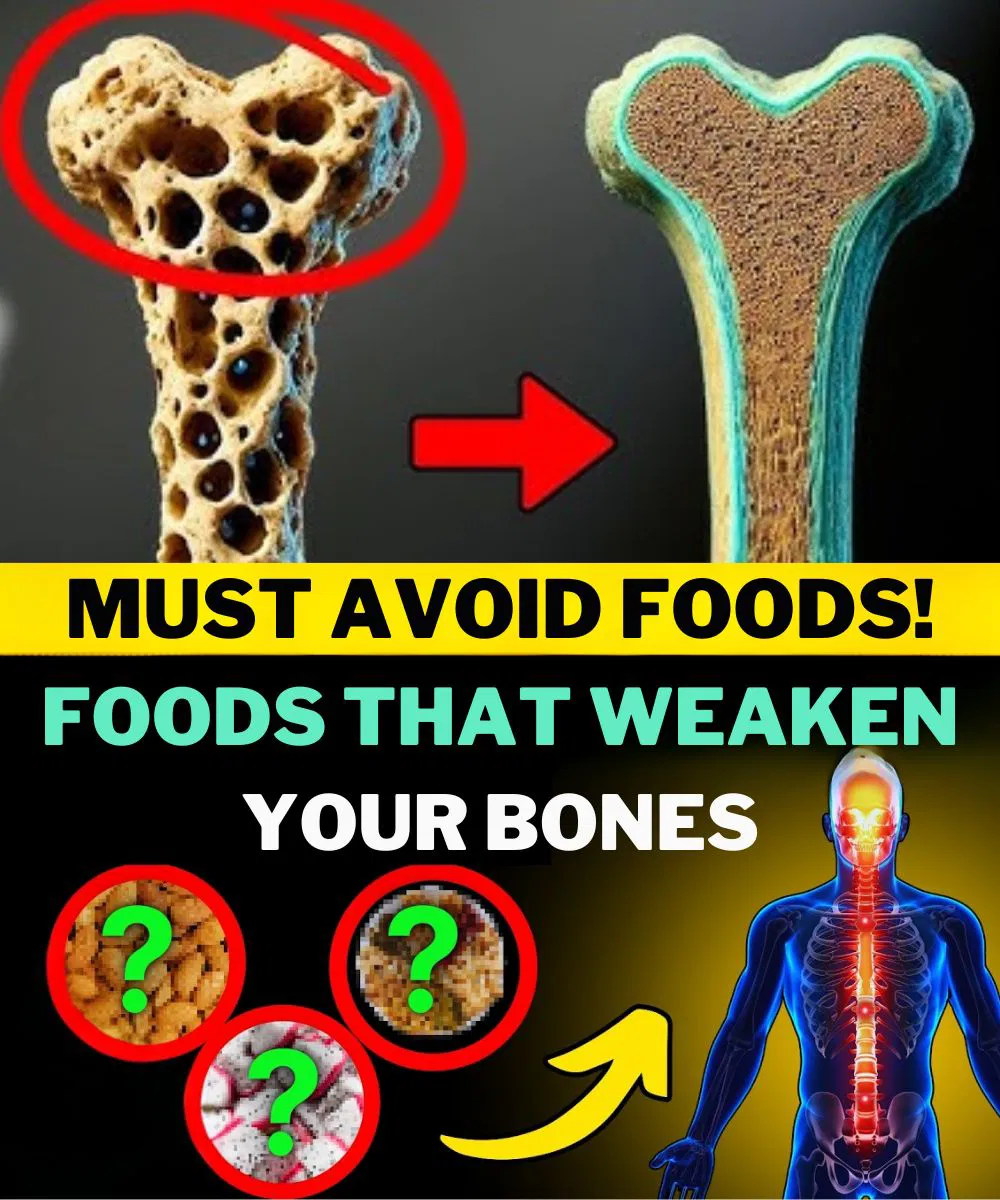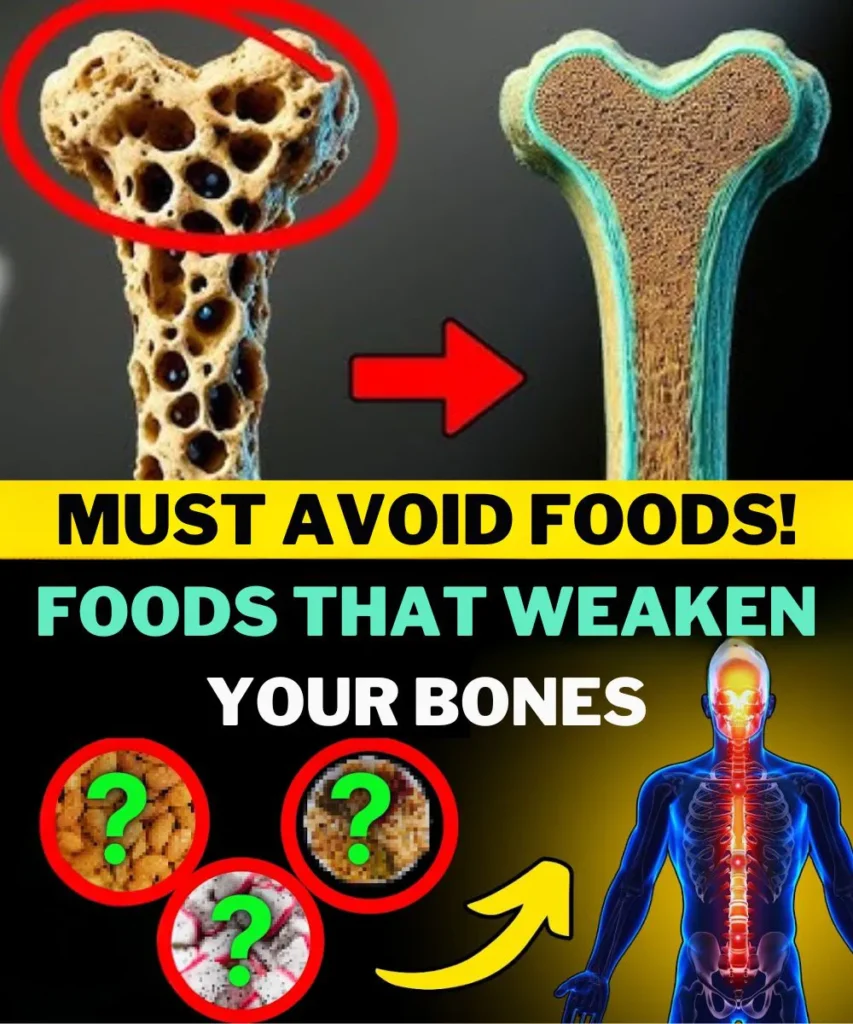Strong bones are essential to overall health, particularly as we grow older. But what if some of your everyday food choices are quietly sabotaging your skeletal strength? It may come as a surprise, but certain common foods can contribute to bone loss, inflammation, and a greater risk of fractures.
 In this article, we highlight some of the worst offenders when it comes to bone health—and what you can eat instead to support a strong, resilient frame for years to come.
In this article, we highlight some of the worst offenders when it comes to bone health—and what you can eat instead to support a strong, resilient frame for years to come.
7 Common Foods That Could Be Weakening Your Bones
1. Soft Drinks
Cola-based sodas are high in phosphoric acid, which may pull calcium from your bones. Research links regular cola consumption with reduced bone mineral density.
Better alternative: Opt for sparkling water with lemon or calcium-enriched herbal teas.
2. Excessive Salt
High sodium intake makes the body flush out calcium through urine, which can gradually thin bones and raise osteoporosis risk.
Tip: Cut back on processed foods—hidden salt is often found in canned soups, chips, and sauces.
3. Too Much Caffeine
While moderate caffeine is generally fine, too much, especially from coffee or energy drinks, can hinder calcium absorption, particularly in postmenopausal women.
What helps: Limit to 1–2 cups of coffee daily and pair it with calcium-rich plant-based milk.
4. Alcohol
Heavy drinking disrupts vitamin D and calcium metabolism and damages bone-forming cells.
Protective tip: Keep alcohol intake moderate—no more than one drink daily for women.
5. Refined Sugar
Sugar promotes calcium loss through urine and fuels inflammation, both of which can compromise bone strength over time.
Healthy swap: Use small amounts of natural sweeteners like honey, and enjoy more whole fruits.
6. Red and Processed Meats
Animal-based high-protein diets may raise acid levels in the body, potentially drawing calcium from bones to restore balance.
Try instead: Incorporate more plant-based proteins like legumes, tofu, seeds, and beans.
7. Trans Fats
Found in packaged snacks, baked goods, and fast foods, trans fats contribute to inflammation and reduce nutrient absorption, weakening bone density.
Avoid it: Read ingredient lists and steer clear of anything containing “partially hydrogenated oils.”
Why Bone Health Is Crucial—Especially for Women
After age 50, hormonal shifts put women at a higher risk for osteoporosis due to lowered calcium and vitamin D levels. Weak bones can lead to fractures, chronic pain, reduced mobility, and loss of independence.
Bone-Boosting Foods to Eat Instead
Dark leafy greens (kale, spinach, collards): rich in calcium and magnesium
Tofu and tempeh: great sources of plant-based calcium
Almonds and chia seeds: deliver calcium and healthy fats
Fortified plant milks: offer both calcium and vitamin D
Beans and lentils: mineral-rich and protein-packed
Low-sugar fruits (like kiwi and oranges): high in vitamin C and support collagen production
Final Thoughts
Your skeleton works hard behind the scenes every day—don’t let poor food choices wear it down. By steering clear of these bone-damaging foods and embracing a nutrient-rich diet, you’re laying the groundwork for strength, balance, and mobility for life.


